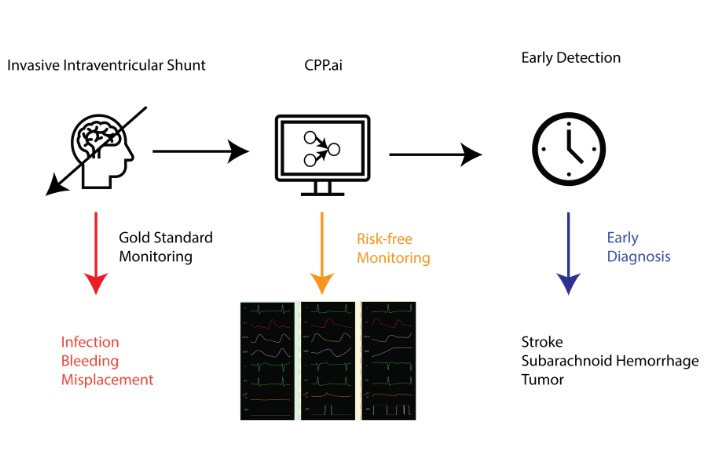AI-Driven Tool to Revolutionize Brain Pressure Monitoring in Intensive Care Patients
Posted on 06 Sep 2024
Intracranial hypertension, characterized by increased pressure within the brain, can lead to severe consequences such as strokes and hemorrhages. Traditionally, monitoring this condition requires invasive procedures that penetrate the skull. Now, researchers have introduced a noninvasive method that utilizes artificial intelligence (AI) to offer a safer and quicker alternative to the current gold standard of drilling into the skull for monitoring intracranial hypertension.
The team at the Icahn School of Medicine at Mount Sinai (New York, NY, USA) has developed an AI model that predicts intracranial pressure by analyzing noninvasive waveform data from electrocardiograms, pulse oximetry, and head ultrasounds in critical care settings. This model was trained on de-identified data from patients who previously had intracranial pressure measurements taken via invasive methods such as lumbar catheters or skull-embedded pressure sensors. This innovative real-time monitoring tool enables rapid detection of changes in brain pressure, allowing for timely interventions that could save lives.

The findings of the retrospective study published in the September 5 online issue of npj Digital Medicine that included data from two U.S. hospitals demonstrated the AI tool's efficacy in instantaneously detecting intracranial pressure. The study revealed that patients in the highest quartile of intracranial pressure measurements had significantly increased risks of severe outcomes like subdural hemorrhages and the need for craniectomies. This research is the most extensive to date concerning intracranial hypertension and the first to provide external validation for the algorithm while also correlating the biomarker with concrete clinical outcomes—a critical step for gaining FDA approval. The researchers are considering applying for breakthrough device status with the FDA, potentially accelerating the adoption of this vital technology in clinical practice.
"Our vision is to integrate this tool into ICUs as a standard part of monitoring critically ill patients. This technology represents a major leap forward, potentially transforming how we manage critically ill patients, reducing the need for risky procedures and enabling faster responses to neurological emergencies,” said senior author Girish Nadkarni, MD, PhD, Irene and Dr. Arthur M. Fishberg Professor of Medicine at Icahn Mount Sinai. “In addition, our findings suggest it could be a valuable tool not only in neurology but also in managing other severe health conditions, such as post-cardiac arrest, glaucoma, and acute liver failure."
Related Links:
Icahn Mount Sinai













